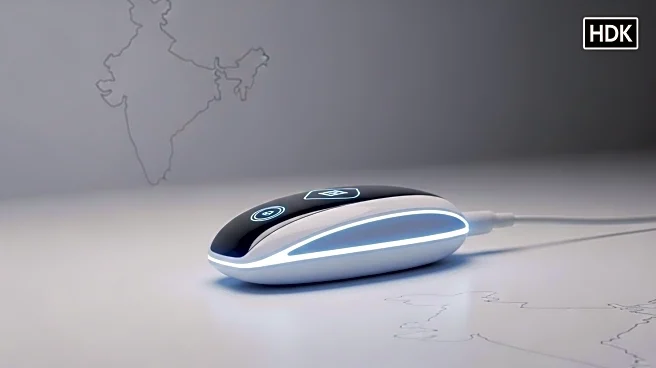What is the story about?
What's Happening?
A study conducted at Madras Medical College in Chennai evaluated the diagnostic performance of the Bilistick 2.0, a point-of-care bilirubin testing device, in a high-volume neonatal setting. The study involved 153 neonates with jaundice or at high risk, comparing Bilistick results with reference laboratory tests. The findings showed strong diagnostic agreement, with a mean absolute difference of 1.35 mg/dL and a correlation of r = 0.88 overall. The device demonstrated potential for rapid and reliable bilirubin management in resource-limited settings.
Why It's Important?
The Bilistick 2.0 device offers a promising solution for neonatal hyperbilirubinemia, a common condition in India where access to reliable bilirubin testing is limited. By providing accurate and timely results, the device can improve the management of jaundice in newborns, potentially reducing the risk of complications. This innovation could be particularly beneficial in resource-limited settings, where traditional laboratory testing may not be readily available.
What's Next?
Further studies and training programs may be necessary to optimize the use of Bilistick 2.0 in various clinical settings. Successful implementation could lead to broader adoption of the device in other regions facing similar challenges. Additionally, the development of similar point-of-care technologies could enhance diagnostic capabilities in other areas of neonatal care.

















